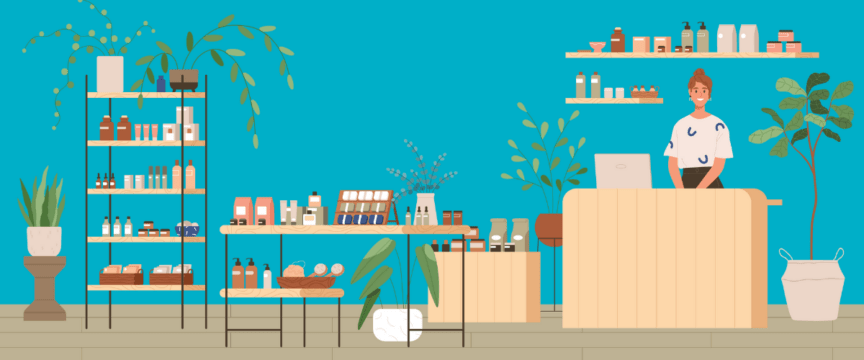Sadness, stress or anxiety are complicated emotions often rooted in bigger feelings like disappointment or powerlessness. Retail therapy can provide you with a sense of reward and control that counteracts these feelings.
Choosing to make a purchase (or not to make a purchase) can help you feel empowered and it can also help others: especially when you choose to shop from small businesses, sharing the love and supporting your community.
But don’t cross the line…
Your brain’s dopamine reward system, the same chemical that plays a big part in addiction, also contributes to potentially compulsive behaviour… like shopping.
Unlike a little well-earned retail therapy, the pleasure associated with compulsive shopping typically doesn’t last long. And this is how you know if you have crossed the line. After you buy something you might have thought you wanted, instead of feeling happy and excited you find yourself feeling guilty or regretful. You might tell yourself you’ll stop spending money soon, only to find that you just keep doing it.
This is buyer’s remorse.
Like all addictions the first step to recovery is to admit to yourself and others that it’s become a problem for you, and reach out for support. You can also develop some mental/emotional tools yourself to help you overcome excess retail therapies.
Hours to earn
If you earn $20 an hour (after tax) and these jeans will cost you $300… tell yourself, “I actually had to work for 15 hours to earn the money to buy them – that’s TWO WHOLE days of work, not counting the other things I need to earn money for (rent, bills, food, transport etc).” This approach can help provide perspective and discourage unnecessary spending.
Alternative Spending
Having a bigger goal can anchor you and help you rationalise your spending, particularly with spontaneous purchases when you’re trying to save for something important. “I quite like these shoes, I don’t really need them, but I think I’ll buy them!” versus “I really want to go on a holiday with my partner next Summer, and I need to save my dollars to do it.” Give yourself a goal that really matters and focus on the that instead of instant gratification.
The cost can be more than the price
Cheap t-shirts, cheap fast food… in fact cheap anything is often cheap for a reason: they come at a real cost to someone, or to our environment. Don’t be a climate hypocrite, make good retail decisions which help yourself, help other people and help our environment.
Source: The Australian government’s MoneySmart website is a great resource for information and advice on how to manage your money: www.moneysmart.gov.au
Watch this episode with Dr Steve, below…


